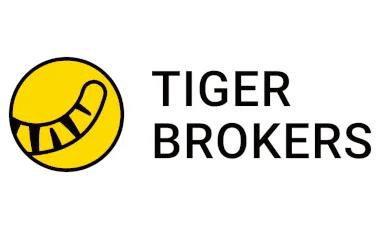Compare other products
We currently don't have that product, but here are others to consider:
How we picked theseThe standard brokerage fee displayed is the trade cost for new customers to purchase $1,000 of either Australian or US shares. Where a platform charges different fees for both US and Australian shares we show the lower of the two. Where both CHESS sponsored and custodian shares are offered, we display the cheapest option.
How do online stock brokers work?
An online stock broker allows you to buy, sell and trade shares online.
By signing up for an account with a online trading platform, you'll be able to trade Australian and international stocks directly from your phone or computer without having to go through a traditional stockbroker.
Many platforms also let you trade other types of investments, such as index funds, exchange-traded funds (ETFs) and more. You can also make use of online tools that let you copy high-profile investors, do-depth research on stocks and give you easy access to data to inform your trades.
What does it cost?
A huge benefit of trading shares online is that it's cheaper than going through a full-service stockbroker.
When you buy shares online, you'll pay a brokerage fee for each transaction which typically ranges from $3 to $30 for ASX trades, but can be as low as $0.
This is opposed to $50 to $150 per trade lodged with a full-service broker.
What features should I look for with online share trading platforms?
- Low fees. These days many online brokers offer low or even $0 trading fees when investing in Australian or global stocks.
- Research tools. News, watchlists, stock data and other analytical features to help you keep on top of the market.
- Educational resources. Many platforms offer guides, videos and other resources to help teach you how markets work or develop an investing strategy.
- Bank account integrations. Some services let you transfer money easily from your trading account to a transaction or savings account. Others offer linked debit cards to use with your accounts.
- Access to Australian shares and global markets. Not all online platforms offer shares from every market. Check if the platform lets you invest where you want.
- Investment options. Other products offered by some online brokers include forex, contracts for difference (CFDs), managed funds and options trading.
- Strong customer support. Check what level of customer support is available, what hours it's available and if the support team is based locally in Australia. This is particularly important for new traders.
It's worth keeping in mind that not all platforms will offer the features listed above. Some brokers will be better suited to certain types of investors and might not be a suitable option for others.
If you're a beginner investor, it might be better to focus on a platform that offers low fees, strong education resources and customer support.
How to sign up with an online stock broker
If you're looking to sign up with a stock broker you'll need to follow 5 steps:
- Find a broker
- Sign up to the broker and verify who you are
- Link your bank account to your stock broker
- Submit application
- Start trading
When you decide on trading, you have two main options: online stock brokers and full-service brokers. An online broker is cheaper than a full-service broker but has the downside of having to do everything yourself, so you'll need to decide what works for you.
What fees do share trading platforms charge?
There are 4 main fees that online share trading platforms may charge:
- Brokerage fees. Brokerage fees (also called commission fees) are the charges that apply to each buy and sell transaction of stocks and ETFs. They usually vary depending on the size of your buy or sell order or how often you trade.
- Ongoing fees. These apply monthly or annually, but not all providers will charge ongoing fees. This may depend on how frequently you trade. For example, inactivity fees are often charged if you don't place any trades within a certain period of time.
- Withdrawal fees. Some brokers charge a fee to withdraw money from your account.
- Foreign exchange fees. If you want to buy US or other global shares, you'll need to pay an exchange fee when you deposit money into your account to convert your Australian dollars to the applicable currency.
Brokerage fees vary between providers but typically start at around the $5–$15 range, though some platforms now charge $0 brokerage on certain trades. Micro-investing apps often use a monthly subscription model where you can make as many trades as you want in return for paying a recurring monthly fee.
If you're planning on making lots of trades, you'll want to keep an eye out for a platform that offers low per-trade fees or consider a monthly fee model.
For large transactions, you might instead need to pay a percentage fees of around 0.1% and up, though many platforms offer flat brokerage fees regardless of the size of your trade.
$0 brokerage fees
Robinhood pioneered zero brokerage trading in the US, and these days many trading platforms also offer free brokerage on stock trading as a way to attract users.
Platforms like CMC Invest, IG and Webull, Vanguard and Betashares Direct all offer some form of $0 brokerage trade on Australian or global stocks.
Whilst this can be a cost-effective way to invest for beginners, there may be trade-offs you aren't aware of, such as other hidden fees or larger spreads.
More advanced trading platforms and those that offer premium services often also charge a monthly fee that could be as high as around $80 per month. Some of them waive this fee if you perform more than a certain number of trades each month.
What assets can you invest in with an online stock broker?
An online stock broker lets you buy and sell assets on a number of exchanges, including the ASX.
This means you can buy shares, ETFs, LICs, REITs, bonds, hybrids and options through a broker.
Depending on the broker, you will be able to buy Australian or international assets. Keep in mind the more you trade the more you'll pay in most instances, as you'll pay a brokerage fee every time you trade.
Why invest in stocks?
Investing is an effective way to make your money work harder for you, especially in a low-interest rate, high-inflation environment. Smart investing allows you to grow your wealth and beat inflation. At the same time, it comes with more risks.
Here are 5 reasons why you might want to invest:
- Diversify income streams. Investing can help you gain an additional revenue stream through dividends or share price appreciation (although you have to sell to realise these gains).
- Better returns. Both the Australian and US stock markets have historically recorded an average annual return of around 9-10%, which is much higher than the return you can get from a savings account or term deposit (and also much higher than inflation).
- Compound benefits. Compounding is the key to growing your wealth. In the share market, this occurs when an investment generates earnings that continue to grow through its share price or when dividends are reinvested. Over time this snowballs, so if you doubled a $1,000 investment 3 times it would actually be worth $8,000.
- Allows you to benefit as the country does. The stock market and the economy aren't always directly related, but a thriving economy usually translates into a rising stock market. Investors in the market directly benefit as corporate earnings increase or consumers spend more.
- Set yourself up in retirement. Unfortunately for most, saving for an adequate retirement is out of reach, even as banks lift interest rates. As such, successful investing can help you live the life you want in retirement.

"Starting investing can be intimidating. There's an overload of information and the worry that you could lose your money. But getting started is the most important step in your investing journey and these days you can invest from as little as $1.
As the old adage says, time in the market beats timing the market. The sooner you start investing, the better your returns are likely to be over time."
How do you make money from shares?
Investors in shares are fractional owners of a business, meaning they will profit based on the future outlook of the business or by getting part of the company paid to them.
There are 2 main ways to make money from share trading:
- Capital growth. If you can sell your shares for a higher price than what you paid for them, you'll make a profit. This is known as capital growth, given that your initial capital (your shares) has increased in value.
- Dividends. Some (but not all) companies pay regular dividends to their shareholders based on the amount of profit they make, which can provide an ongoing income stream plus tax advantages for certain investors. Dividend payments are a great form of passive income and it means investors may never need to sell their shares in order to make a profit. Some companies offer dividend reinvestment strategies allowing you to increase your holdings by giving you more shares.
VIDEO: How the stock market works

Facts and figures about trading platforms in Australia
- There are at least 40 online stockbrokers in Australia today according to Finder data.
- 38% of Australians own shares, and 53% of those Australians invest in the stock market via share trading platforms.
- 95% of the trading platforms offer Australian stocks, 70% offer US stocks and 32% offer stocks from the UK (Finder).
- You'll normally pay anywhere from $0 to $40 per trade when buying and selling Australian stocks. The average brokerage fee to purchase $1,000 of stock from an ASX-listed company is around $10 as of Janaury 2025, based on Finder analysis.1
- The average brokerage fee to purchase $1,000 of stock from a US company on an Australian trading platform is $12.13 as of 2025, although several brokers now offer $0 brokerage fees for US stocks.
- Just over 2 decades ago (2001), 18% of trades in Australia occured via an online share trading platform (RBA). Today around 70% of investors use a trading platform to buy shares (ASX).

"Many investors spend hours reading reports and studying charts to select the "right" share, only to disregard the most important factor – themselves. Every individual's circumstances are unique. We all have different investment goals, amounts to invest, time frames, existing investments and risk appetites. All of these should be taken into account when selecting a stock.
An exciting new technology start-up or a promising medical research group might suit an investor with a higher risk appetite and many years of investing ahead of them. On the other hand, an investor in or near retirement might prefer a more stable, well-known business that pays a reliable dividend. It's up to you."
Share trading guides and resources
Is trading shares online safe? What are the risks?
As with any type of investment, there are risks to trading shares online. With any investment there's the risk that you'll lose your money if the businesses you invest in fail.
And there are risks that depend on the share trading platform you choose.
Before you start using a platform, check whether the online broker has a good reputation and is a trusted provider in the community. There are several key details to look out for:
- ASIC regulated. Make sure the platform holds an AFS license with ASIC. This number will usually be displayed on the company homepage and on the Product Disclosure Statement (PDS). You can also check ASIC's registers. All share trading platforms displayed on Finder's comparison tables are regulated under ASIC.
- Reviews. Find out other users' experiences with the platform by reading customer reviews.
- Experience. Find out how long it has been offering online share trading services. Is it backed by a large bank or financial institution?
- Encryption. Reputable online trading platforms rely on encryption technology to protect your sensitive information. This means that when you log in to a broker's website, no one will be able to see any of the information transmitted between you and the broker.
- Login information. Check out what information you will need to provide in order to log in to your account. While many providers only ask for a username and password, others may ask you to enter an additional security code.
- Online checks. Does the provider offer online checks and restrictions to reduce the risk of fraud? For example, do you receive an SMS code that you will need to enter before trading or do you need to answer an online security question?
- Previewing trades. When talking about online share trading security, it's also important to check that there are measures in place to prevent you from placing the wrong trade. For example, does the trading platform show you a preview screen outlining the full details of a transaction, such as the total cost and the total shares purchased, before placing a trade?
- Processes for dealing with fraud. Next, check to see what will happen if you're a victim of fraud via your trading account. Does the provider have processes in place to reimburse you for any losses you suffer through no fault of your own if you are the victim of fraud? Are there any exclusions to when this cover applies?
- Customer support. It's vital that if something ever goes wrong with a trade or you have a problem with your account, you can quickly access assistance from a company representative. Check to see when and how you can get in touch with the customer support team.
Frequently asked questions
How Finder Score helps you compare brokers
We assess more than 35 features across 30+ platforms, assessing them for fees, accessibility, features and customer experience. Finder Score assigns each platform a score out of 10 - the higher the score, the better the product.
The Finder Score methodology is designed by our insights and editorial team. We review products objectively. Commercial partnerships do not affect the scores.
Digging deeper into the Finder share trading score
- 9+ Excellent - These platforms are feature rich with competitive fees, offering the best value for you.
- 7+ Great - While still competitive and offering good value, these platforms may lack in either features or fees.
- 5+ Satisfactory - These platforms tend to have fewer features than market leaders and could potentially be more expensive.
- Less than 5 – Basic - These platforms may have many features, offering a no-frills product.
Sources
Ask a question
26 Responses
Read more on Share Trading
-
The best trading platforms in Australia for beginners
Looking to start investing? Here are our top 6 online trading platforms for total beginners in Australia.
-
Best stocks under $5 in Australia (2026)
We used Finder's proprietary algorithm to find Australian-listed companies that have strong fundamentals and have a share price under $5.
-
The best ASX penny stocks (updated weekly)
Best performers included Latitude 66, Cosmos Exploration and Javelin Minerals.
-
The best ASX shares to buy in February 2026
Here are our algorithm-selected 20 Aussie stocks worth watching in 2026.
-
How to invest in the ASX 200
You often hear people talk about whether the ASX200 is up, down or flat. So, why is it such a big deal?
-
What are the best AI stocks on the ASX in 2026? Stocks and ETFs to watch
Here's what investors should know before adding AI stocks to their portfolios.
-
How to invest in the S&P 500
Find out the different ways you can invest in the S&P 500 index from Australia.
-
Best ASX dividend stocks for 2026
Following a couple of lean years for dividend investors, here are 10 ideas you could consider in your portfolio.
-
How to invest in index funds in Australia
Index funds are a hot topic right now, but how do you actually invest in them?
-
How to buy gold in Australia
If you’re thinking of investing in gold, our guide will explain how and where to buy gold in Australia as well as the pros and cons of investing in it.









I am currently trading shares using the Commsec Platform which includes the CommSec IRESS free.
Is there anything better than this to change over to? If so, is it easy to do transfers of up to 700k in value of a diversified share portfolio?
Hi Andrew, if you’re looking for a platform that offers an IRESS account at a lower price point, there are several trading platforms. These include nabtrade, Bell Direct and HSBC Online Share Trading. Whether these are better overall for you depends on how often you trade and your overall goals. If you like CommSec but don’t want to pay the fee, you have the choice of unsubscribing from the IRESS account option. Transferring between brokers usually requires filling out a form and you may have to pay a transfer fee. It’s best to contact your new broker for details on their process.
Cheers
What is the best broker for trading LEPOs (Low Exercise Price Options)
Hi Alex, We rank best platforms for a variety of needs. While we don’t have an LEPO-specific pick, you might want to consider our selections for active traders and ASX trading. Hope this helps.
Hi! What is the best platform that has a stock screener for fundamental and technical analysis and has a good charting software? Thanks!
Hi Jarvis,
Thanks for contacting Finder.
You may refer to our list of online share trading platforms. On that page is a comparison table you can use to find the right platform for you. You can press the name of the brand to be redirected to our review page to know if the features you are looking for are present. When you are ready, press the ‘Start investing’ button to open an investment account. Please read the Product Disclosure Statements/Terms and Conditions when comparing your options before making a decision on whether it is right for you. You can also contact the provider if you have specific questions.
I hope that helps.
Kind Regards,
Faye
how do i transfer stock from one broker to another
Hi Stu,
Thanks for getting in touch!
To transfer from one broker to another will depend on who your bank is. Following, you would need to fill out a broker to broker transfer form.
Fill out your details as well as the details of the holding, then complete and sign the Declaration Section. Email the form to your bank’s department handling this matter. Normally, this type of process is free of cost. The transfer process will be dependent on your bank as well.
Hope this was helpful. Don’t hesitate to message us back if you have more questions.
Best,
Nikki
We just want to make a one of sale of shares. What are our best options?
Hi Charles,
Thanks for getting in touch! As per the information above, there are two main ways to make money from share trading: Capital Growth and Dividends and you can read more information on this above. While we review share trading – we are not in the position to recommend the best platform for you but there are a few ways to help you find the best options as seen below:
– Brokers
– Availability of advice and research options
– Integration with bank accounts
– Access to other markets
– Customer support
Hope this helps!
Best,
Nikki